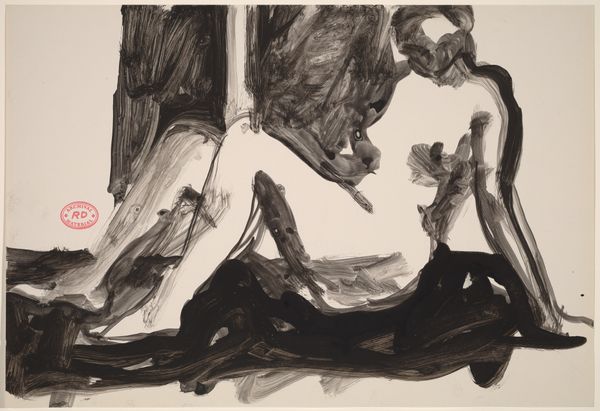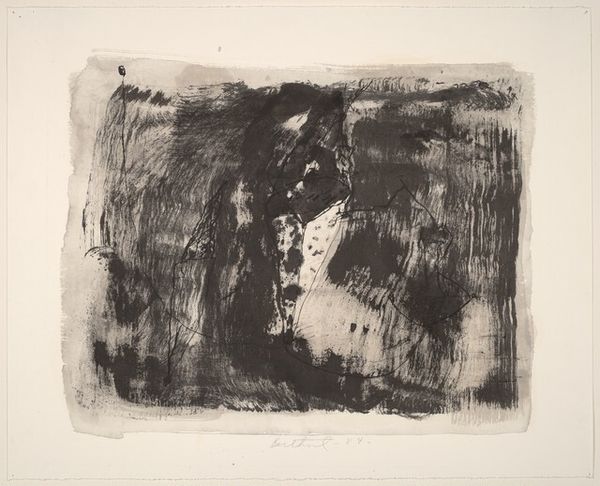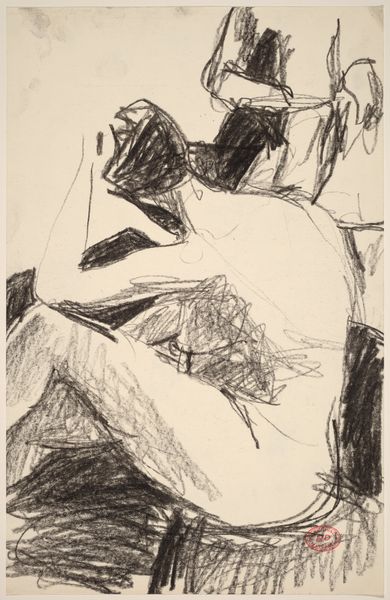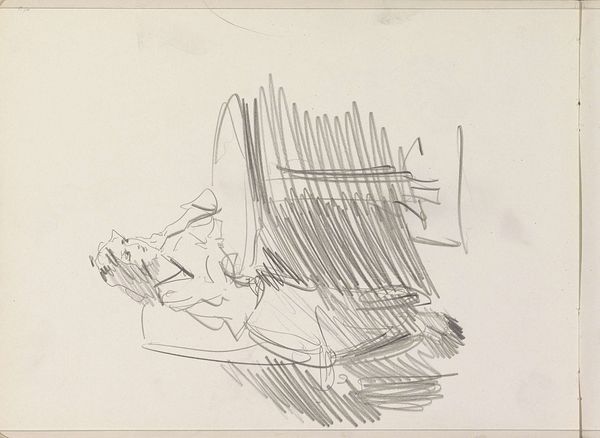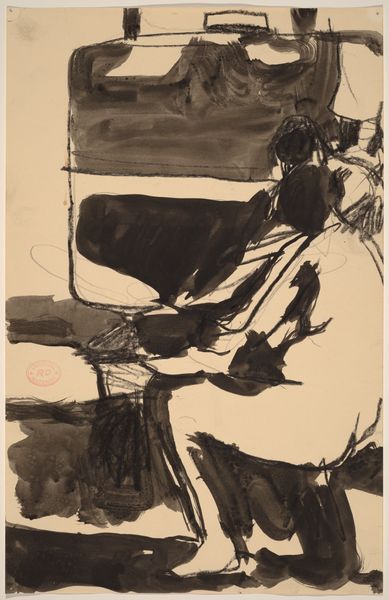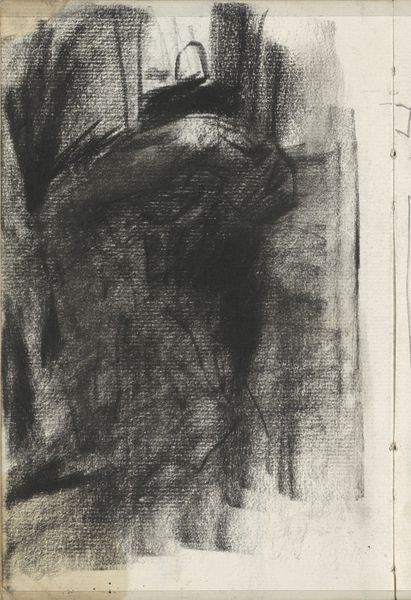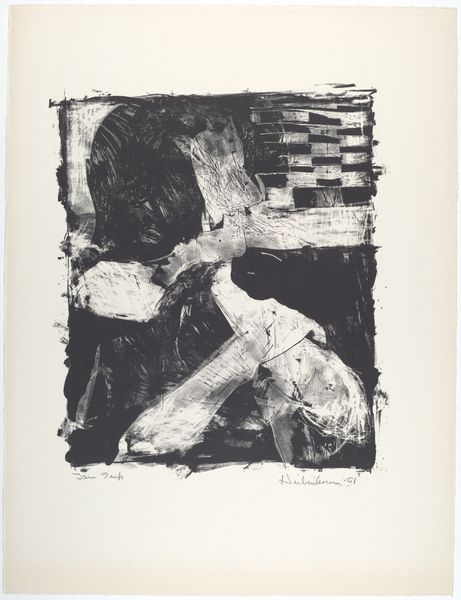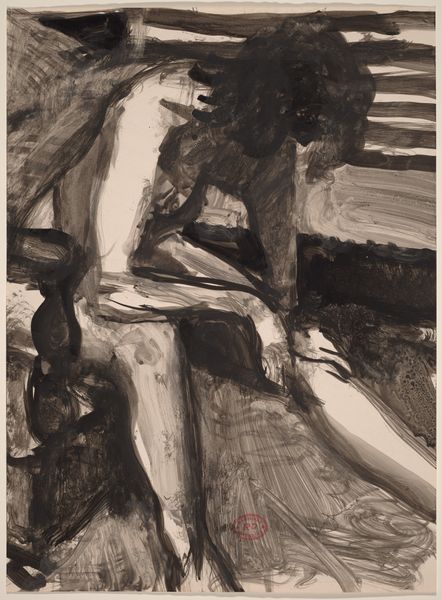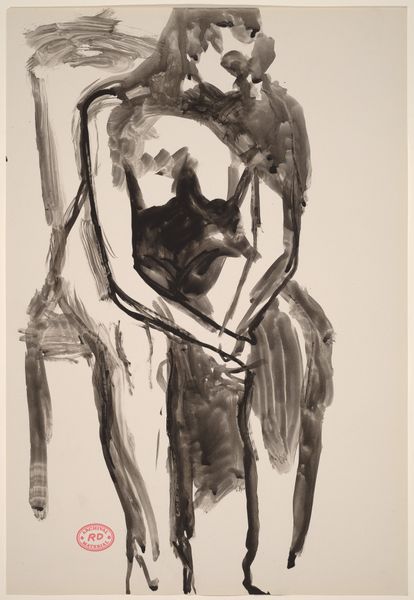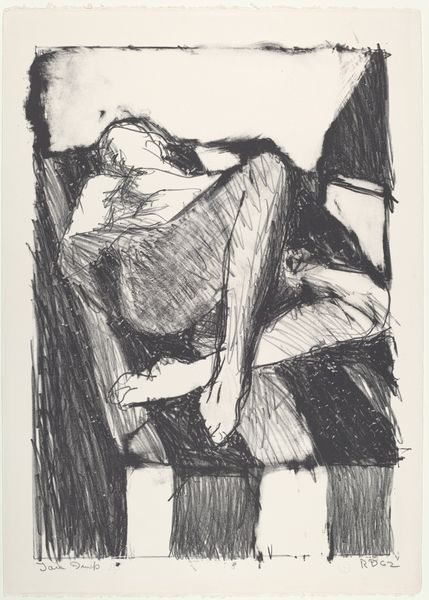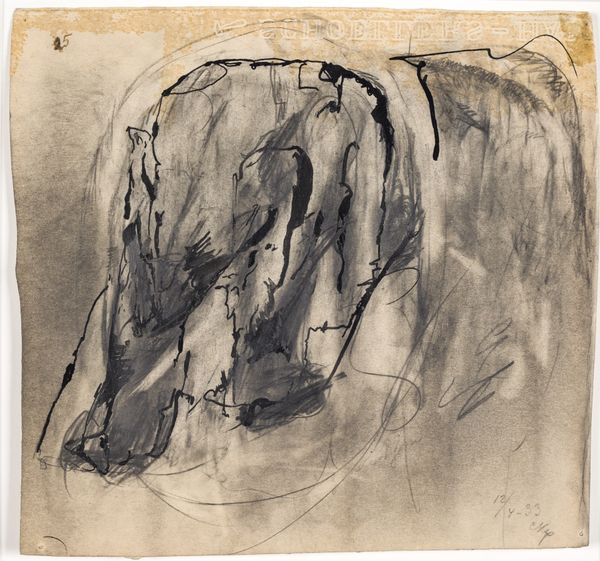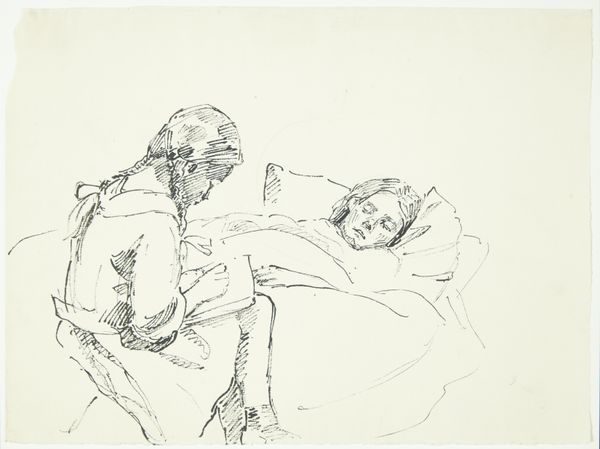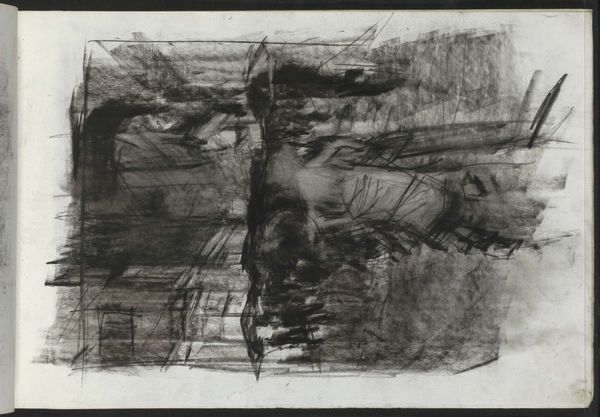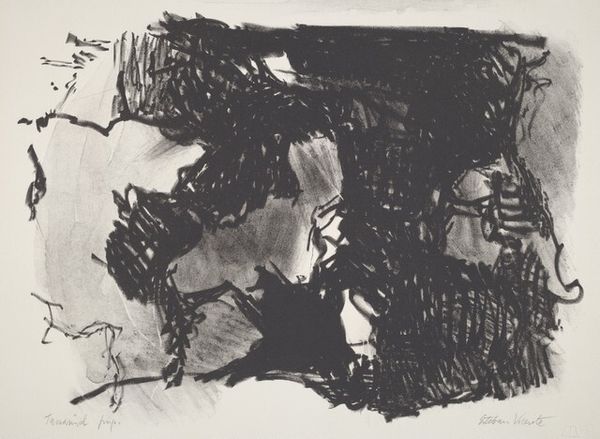
# print
#
figuration
#
bay-area-figurative-movement
#
abstraction
#
nude
#
monochrome
Copyright: National Gallery of Art: CC0 1.0
Editor: This is Richard Diebenkorn's "Reclining Woman" from 1962, a black and white print. The heavy contrast and loose brushstrokes give it such a somber, almost unsettling mood. How do you read the historical context influencing a piece like this? Curator: The socio-political atmosphere of the early 1960s, marked by anxieties about the Cold War and evolving social norms, significantly impacted artistic production. Abstract Expressionism, from which Diebenkorn departs here, previously dominated, conveying universal emotions divorced from social commentary. This piece, however, signals a shift. While remaining rooted in abstraction, the figurative element—a reclining woman—reintroduces narrative, albeit ambiguously. It invites us to consider how the female form was being viewed and depicted during a period of changing gender roles and burgeoning feminist discourse. What do you notice about the framing and composition of the image? Editor: The rectangle that encloses the figure feels very restrictive. Is that related? Curator: Precisely. Consider how the composition confines the female figure within this stark, dark rectangle. The "window," we might call it. One might analyze it in the context of broader power dynamics at play. Think of how artistic spaces—galleries, museums—were, and to some extent, still are, largely shaped by male perspectives. This restrictive framing perhaps speaks to the historical marginalization and objectification of women within those established artistic structures and representational modes. Do you feel it could be read in that sense? Editor: Yes, absolutely. Thinking about it that way makes the figure's almost ambiguous form seem like resistance in itself. Curator: And the very *act* of abstraction then becomes a political choice. Fascinating how it invites ongoing critical reinterpretation, isn't it? Editor: Definitely gives me a lot to think about regarding how art and culture are intertwined. Thanks!
Comments
No comments
Be the first to comment and join the conversation on the ultimate creative platform.
